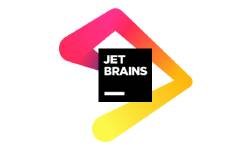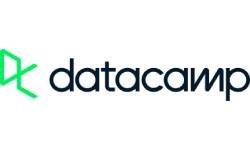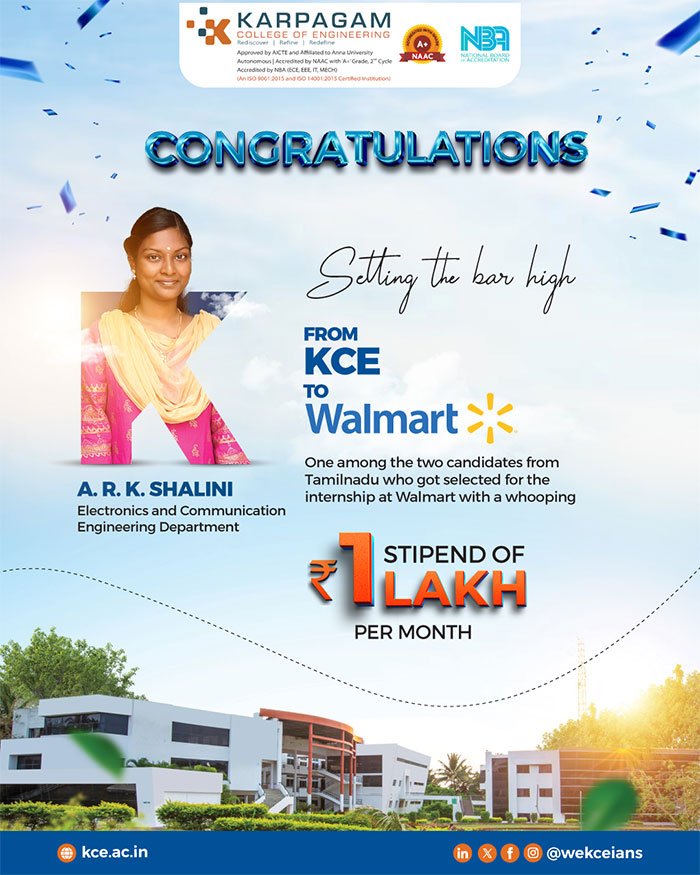About the Department

The program, spanning 4 years and divided into 8 semesters, equips students with the skills and expertise needed for R&D positions in industry, academia, and research laboratories. It also emphasizes practical applications through elective courses in domains like robotics, medical signal processing, data mining, business analytics, and more.
Upon completion, graduates have opportunities for fully paid internships and placements at top companies like Intel, Cerner, Robert Bosch, DELL, etc. The program’s focus on AI and data science prepares students for high-paying careers in industries such as manufacturing, e-commerce, banking, finance, transport, and healthcare, where intelligent business solutions and big data solutions are in high demand.
The Department of Artificial Intelligence and Data Science’s ambassadorship with NVIDIA’s academic programs highlights its dedication to cutting-edge technology education. This partnership offers students and faculty access to advanced resources, industry projects, and networking opportunities, shaping them into future tech leaders.

- Organized student participation in three Nvidia GTC Global Conferences through NVIDIA academic programs.
- Secured NVIDIA sponsorship for AI Lab equipment, including the NVIDIA DGX Server and Jetson Kit.
- Industrial collaboration session at the NVIDIA Bangalore campus to foster industry partnerships and knowledge exchange.




Name of the startup: Insiflo AI Private Limited
Name of the students: Dhanavishnu A, Paushigaa S
Funds received for a startup: Microsoft startup fund
Website: https://insifloai.com/

Name of the startup: Inogar Private Limited
Name of the students: Somanath T.G, Shaafiqe M, Dhyaneshwaran
Funds received for a startup: Raw materials support from Royal Universys
Website: https://www.inogarzone.com//
Qlik, Tableau, NVIDIA, Databricks, Datacamp, JetBrains, and YardStick Digital Solutions, Krypc Technologies Pvt Ltd.








IIT Bombay Entrepreneurship cell, Royal Universys Webnet Private Limited, Analytics India Magazine.



Vision
To become an integrative department through creativity and innovation in developing systems with Artificial Intelligence and Data Science to serve society.
Mission
- Engage collaborative activities with the industry to produce industry-ready and future-ready talent.
- Foster the spirit of lifelong learning in students through practical and social exposure beyond the classroom.
- Provide multi-disciplinary research and innovation driven academic environments.
- Practice and instil the highest standards of professional ethics, transparency and accountability at all levels.
Regulations
Programme Educational Objectives
- PEO1: Graduates will be able to demonstrate technical skills, competency in Artificial Intelligence and Data Science, exhibit proficiency and team management capability with proper communication in the job environment.
- PEO2: Graduates will be able to work effectively in multidisciplinary engineering projects and support the growth of the economy of a nation by becoming entrepreneurs with a lifelong learning practice.
- PEO3: Graduates will be able to carry out the research in the contemporary areas of Artificial Intelligence, Data Science and address the basic needs of the society.
PO1: Engineering knowledge
Engineering knowledge: Apply the knowledge of mathematics, science, engineering fundamentals, and an engineering specialization to the solution of complex engineering problems.
PO2: Problem analysis
Identify, formulate, review research literature, and analyze complex engineering problems reaching substantiated conclusions using first principles of mathematics, natural sciences, and engineering sciences.
PO3: Design/development of solutions
Design solutions for complex engineering problems and design system components or processes that meet the specified needs with appropriate consideration for the public health and safety, and the cultural, societal, and environmental considerations.
PO4: Conduct investigations of complex problems
Use research-based knowledge and research methods including design of experiments, analysis and interpretation of data, and synthesis of the information to provide valid conclusions.
PO5: Modern tool usage
Create, select, and apply appropriate techniques, resources, and modern engineering and IT tools including prediction and modeling to complex engineering activities with an understanding of the limitations.
PO6: The engineer and society
Apply reasoning informed by the contextual knowledge to assess societal, health, safety, legal and cultural issues and the consequent responsibilities relevant to the professional engineering practice.
PO7: Environment and sustainability
Understand the impact of the professional engineering solutions in societal and environmental contexts, and demonstrate the knowledge of, and need for sustainable development.
PO8: Ethics
Apply ethical principles and commit to professional ethics and responsibilities and norms of the engineering practice.
PO9: Individual and team work
Function effectively as an individual, and as a member or leader in diverse teams, and in multidisciplinary settings.
PO10: Communication
Communicate effectively on complex engineering activities with the engineering community and with society at large, such as, being able to comprehend and write effective reports and design documentation, make effective presentations, and give and receive clear instructions.
PO11: Project management and finance
Demonstrate knowledge and understanding of the engineering and management principles and apply these to one’s own work, as a member and leader in a team, to manage projects and in multidisciplinary environments.
PO12: Life-long learning
Recognize the need for, and have the preparation and ability to engage in independent and life-long learning in the broadest context of technological change.
- PSO1: Demonstrate the knowledge of Artificial Intelligence, Machine Learning and Data Science for designing and developing intelligent systems
- PSO2: Implement Artificial Intelligence and data science methods for solving a problem in multi-disciplinary areas and design novel algorithms.
| S.No | Name | Designation | Qualification | DOJ |
|---|---|---|---|---|
| 1 | Dr. Karthik G | Professor | M.E, Ph.D | 01-11-2021 |
| 2 | Dr. Rajeswari P | Professor | M.E, Ph.D | 08-05-2023 |
| 3 | Dr. Madhumitha R | Associate Professor | M.Tech., Ph.D | 11-06-2018 |
| 4 | Dr. Guhan T | Associate Professor | M.E, Ph.D | 05-12-2022 |
| 5 | Dr. Malini G | Associate Professor | M.Tech, Ph.D | 08-05-2023 |
| 6 | Dr. Manikandan S | Assistant Professor | M.Tech, Ph.D | 16-12-2013 |
| 7 | Mr. Surenther I | Assistant Professor | M.E | 03-04-2019 |
| 8 | Mr. Vikkram R | Assistant Professor | M.E | 17-06-2019 |
| 9 | Ms. Sathya K | Assistant Professor | M.E | 02-08-2021 |
| 10 | Mr. Varatharajan N | Assistant Professor | M.E, Ph.D | 11-08-2021 |
| 11 | Mr. Castro. S | Assistant Professor | M.E | 18-08-2021 |
| 12 | Mr. Navaneetha Krishnan M | Assistant Professor | MCA, M.E | 06-09-2021 |
| 13 | Mr. Nagaraj S | Assistant Professor | M.E | 04-05-2022 |
| 14 | Ms. Dhivya P | Assistant Professor | M.E | 06-06-2022 |
| 15 | Dr. Karthikeyan G | Assistant Professor | M.E, Ph.D | 13-06-2022 |
| 16 | Ms. Gayathri U | Assistant Professor | M.E | 28-08-2023 |
| 17 | Ms. Vishnupriya K | Assistant Professor | M.E | 20-09-2023 |
| 18 | Ms. Saranya N | Assistant Professor | M.E | 01-04-2024 |
| Core | Addition to Core |
|---|---|
| Data Science Data Analytics R Program Foundation of AI Machine Learning Deep Learning RPA / Robotics Data Visualization Computer Vision NLP Auto ML |
Apache Spark Apache Kafka Apache Hadoop Sqoop Flume Data Visualization |
- AI Tech Lab
- Microsoft lab
- Data Centre
- Computer Vision & IOT
- Artificial Intelligence Engineer
- Data Scientist
- Business Intelligence Developer
- Data Analyst
- Product Analyst
- Full stack developer
- Machine Learning Engineer
- Machine Learning Architect
| IN GLOBAL | IN INDIA |
|---|---|
| Amazon Databricks DataRobot |
Tata Consultancy Services Accenture Tiger Analytics Amazon India CTS |
B.Tech. – Artificial Intelligence and Data Science
- Duration: 4 years (Regular) / 3 years (Lateral Entry)
- No. of Semesters: 8 (Regular) / 6 (Lateral Entry)
- No. of Seats: Total – 120
- Eligibility: 10+2 system of Education. Must have secured a pass in Physics, Chemistry and Mathematics in the qualifying examination.
- Scope for Higher Studies: M.E. / M. Tech. / MBA / M.S. / Researcher




